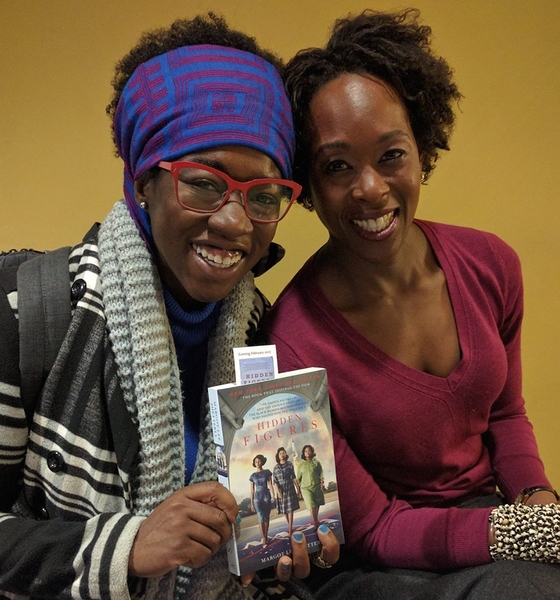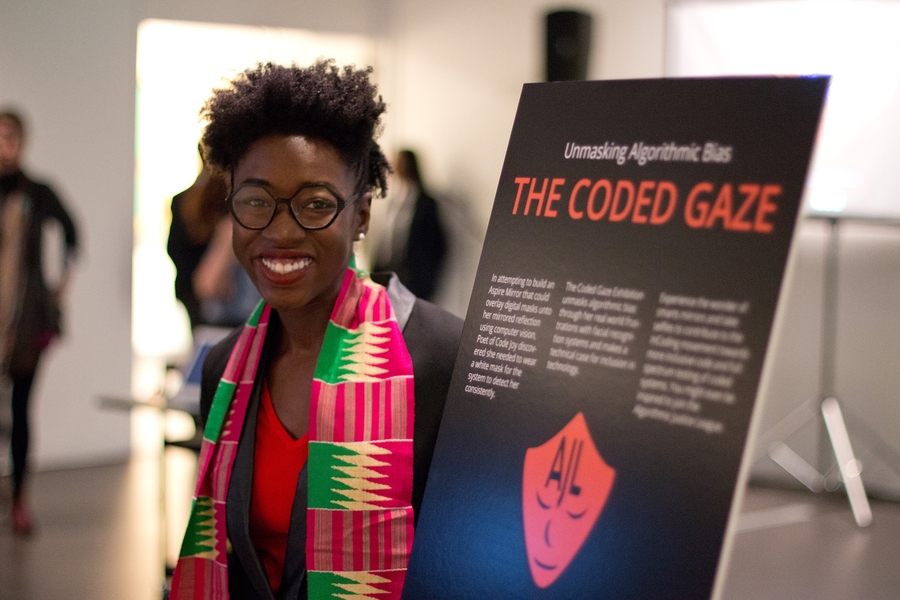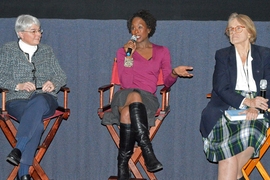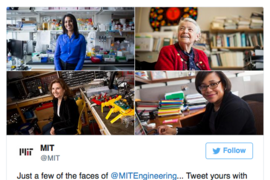When Joy Buolamwini, an MIT master's candidate in media arts and sciences, sits in front a mirror, she sees a black woman in her 20s. But when her photo is run through recognition software, it does not recognize her face. A seemingly neutral machine programmed with algorithms-codified processes simply fails to detect her features. Buolamwini is, she says, "on the wrong side of computational decisions" that can lead to exclusionary and discriminatory practices and behaviors in society.
That phenomenon, which Buolamwini calls the “coded gaze," is what motivated her late last year to launch the Algorithmic Justice League (AJL) to highlight such bias through provocative media and interactive exhibitions; to provide space for people to voice concerns and experiences with coded discrimination; and to develop practices for accountability during the design, development, and deployment phases of coded systems.
That work is what contributed to the Media Lab student earning the grand prize in the professional category of The Search for Hidden Figures. The nationwide contest, created by PepsiCo and 21st Century Fox in partnership with the New York Academy of Sciences, is named for a recently released film that tells the real-life story of three African-American women at NASA whose math brilliance helped launch the United States into the space race in the early 1960s.
"I'm honored to receive this recognition, and I'll use the prize to continue my mission to show compassion through computation," says Buolamwini, who was born in Canada, then lived in Ghana and, at the age of four, moved to Oxford, Mississippi. She’s a two-time recipient of an Astronaut Scholarship in a program established by NASA’s Mercury 7 crew members, including late astronaut John Glenn, who are depicted in the film "Hidden Figures."
The film had a big impact on Buolamwini when she saw a special MIT sneak preview in early December: "I witnessed the power of storytelling to change cultural perceptions by highlighting hidden truths. After the screening where I met Margot Lee Shetterly, who wrote the book on which the film is based, I left inspired to tell my story, and applied for the contest. Being selected as a grand prize winner provides affirmation that pursuing STEM is worth celebrating. And it's an important reminder to share the stories of discriminatory experiences that necessitate the Algorithmic Justice League as well as the uplifting stories of people who come together to create a world where technology can work for all of us and drive social change."
The Search for Hidden Figures contest attracted 7,300 submissions from students across the United States. As one of two grand prize winners, Buolamwini receives a $50,000 scholarship, a trip to the Kennedy Space Center in Florida, plus access to New York Academy of Sciences training materials and programs in STEM. She plans to use the prize resources to develop what she calls "bias busting" tools to help defeat bias in machine learning.
That is the focus of her current research at the MIT Media Lab, where Buolamwini is in the Civic Media group pursuing a master's degree with an eye toward a PhD. "The Media Lab serves as a unifying thread in my journey in STEM. Until I saw the lab on TV, I didn't realize there was a place dedicated to exploring the future of humanity and technology by allowing us to indulge our imaginations by continuously asking, 'What if?'"
Before coming to the Media Lab, Buolamwini earned a BS in computer science as a Stamps President's Scholar at Georgia Tech and a master's in learning and technology as a Rhodes Scholar at Oxford University. As part of her Rhodes Scholar Service Year, Buolamwini launched Code4Rights to guide young people in partnering with local organizations to develop meaningful technology for their communities. In that year, she also built upon a computer science learning initiative she’d created during her Fulbright fellowship in Lusaka, Zambia, to empower young people to become creators of technology. And, as an entrepreneur, she co-founded a startup hair care technology company and now advises an MIT-connected "smart" clothing startup aimed at transforming women’s health. She's also an experienced public speaker, most recently at TEDx Beacon Street, the White House, the Vatican, and the Museum of Fine Arts, Boston.
From an early age, Buolamwini felt encouraged to aim high in STEM: "I went after my dreams, and now I continue to push myself beyond present barriers to create a more inclusive future. Inclusive participation matters. And, by being visible in STEM, I hope to inspire the next generation of stargazers."




![“There's a lot of role models here [at MIT], and sometimes, in Chile or in Mexico or in Costa Rica, [girls] don't know that there's a graduate student or an undergrad doing these cool things at MIT,” says grad student Alicia Chong Rodriguez. “I think it's a matter of just connecting the dots.”](/sites/default/files/styles/news_article__archive/public/images/201608/MIT-Alicia-Chong-1.jpg?itok=Wb94ZQ87)






